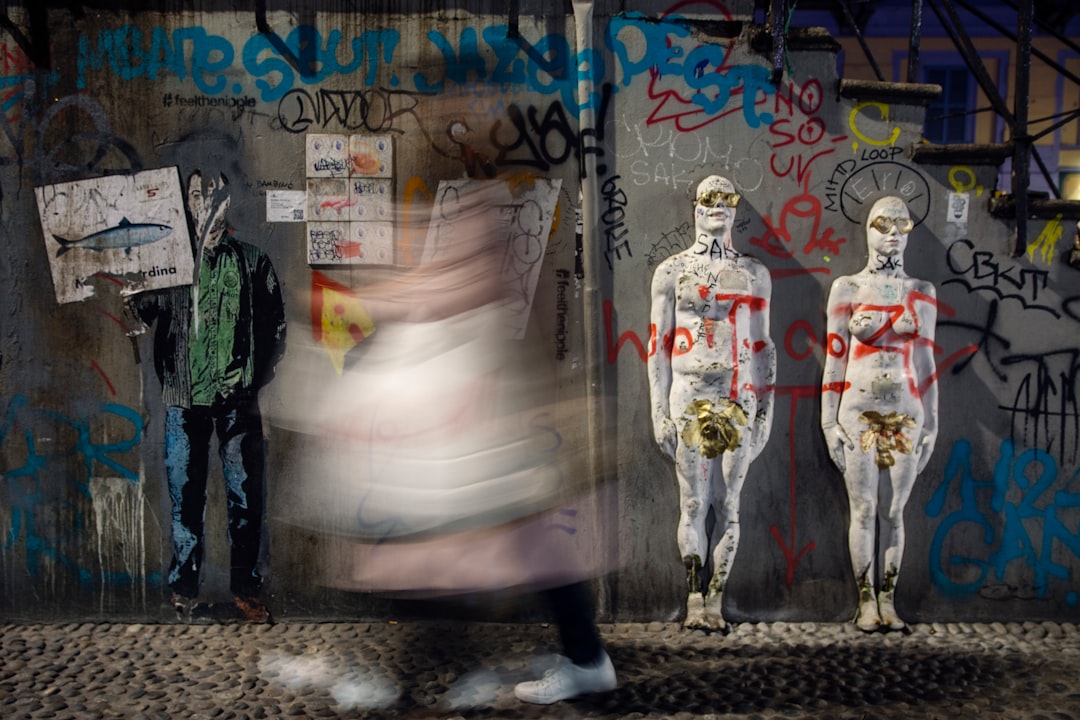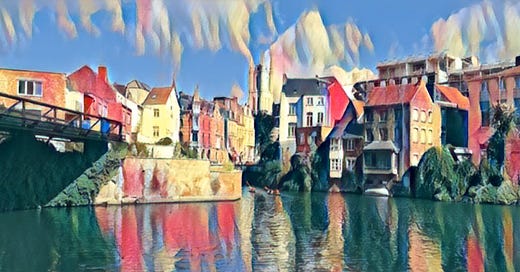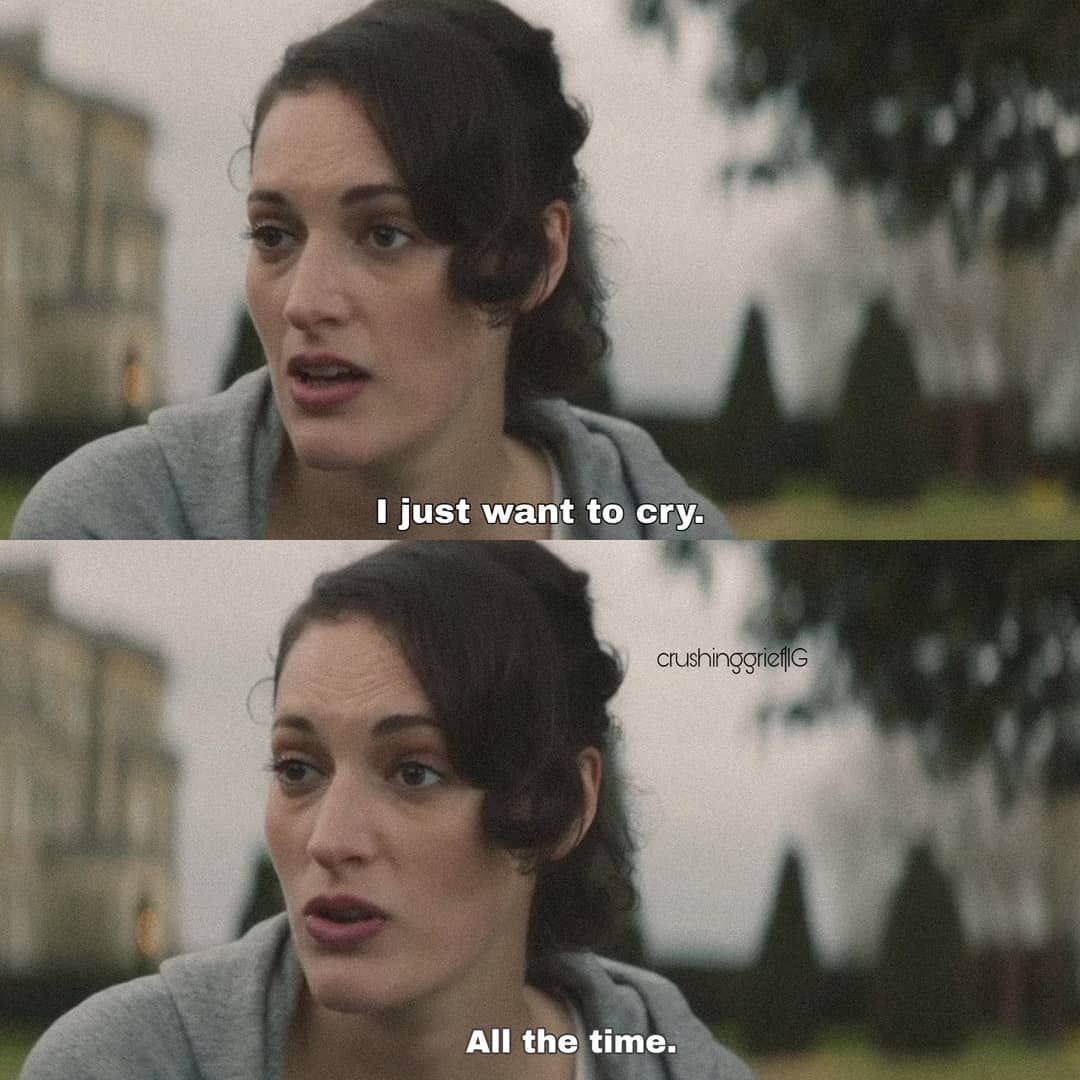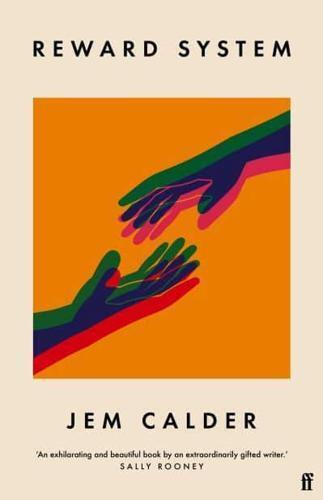I live in Gent, which is dubbed the Amsterdam of Belgium. Both sides of the apartment face canals, so naturally, I am drawn to stand at the window with a mug and coffee in my hand from time to time.
Across one of the canals, there is a building with apartments for seniors. I constantly see them peeking back in our living room or sitting on their balconies when it's sunny. I wonder how lonely they are.
I imagine the pandemic was a tough time for them. Visitors were banned, and the incredibly high death rates in eldercare here in Belgium probably compounded the loneliness with fear.
Once every week or so, people would come to play music and dance in front of their building. I would also stand in my window to see (and maybe dance a tad as well, I have to confess).
Across the canal, I feel lonely too. I'm on a different continent now from the one I grew up on. It's not an easy thing to confess, but in reality, who isn't at least partially lonely?
Making friends
We are "coming out” of pandemics in which we were isolated. We just noticed how crucial friends and real-life meetings are. However, we lack time. We live in a different country, city, or continent from our homes.
I don't know if it's just a coincidence or if more people are experiencing the same, but I'm seeing a surge of content on the topic of making friends. I've listened to a few podcasts, which made me realize a lot of people are in the same position as I am.
It's not easy or comfortable to say we are lonely. It comes with a lot of shame. But the truth is, there are different types of connections and friendships that are significant to us, as Dr. Laurie Santos explains in this podcast:
There are more extensive and weaker connections that make us feel that we are part of something and give us a sense of belonging. That can be from work, church, community service, fandom, or anything like that.
We then have our 10-20 friends who we can call to chat or grab a beer or coffee. Friends that will be there to have fun with.
And finally, we have our small group of close friends. We can open up to them and rely on them for serious matters.
You can be missing one of those components, or you can be missing all of them. As we grow up, move around, start over, and start a family, it seems increasingly difficult to make and keep friends. Social media was supposed to help, but it only pretends to connect us, and in reality, it brings us apart.
It takes effort and time
We have this belief that friends will magically appear. When we were kids or teenagers, friendships would flourish, and probably that's where the misconception comes from. The truth is that it was easier back then because we had more time and were in close proximity every day with our future friends.
We were sitting with the same people every day around the clock. Those have a higher chance of becoming your friends, simply because of the number of possible interactions.
We think that to make friends, we need to enjoy the same things, have the same political backgrounds, and the same hobbies. Those are helpful, but the most critical thing is time and proximity.
The problem appears once friends move away - which gets in the way of proximity - or go through milestones such as getting married and having kids - which requires a lot of time. Life just gets in the way.
Can we feel more connected?
A few months ago I decided to take matters into my own hands and just cold-message two girls on social media. They live in my city and seemed quite friendly. We hung out and I had a great time with them.
I recently downloaded a dating app called Bumble, which also has a "BFF" feature for finding friends. It was a really fun time last Friday when 10 of us met up through the app for a casual get-together.
Although people feel ashamed about it, there are a lot of people looking for friends, and sometimes you just have to get yourself out there. Call people out, find a new class, or do some volunteering.
The pandemic has shifted our priorities and made us see that we have put work on the center stage of our lives for way too long. We moved away to work and made our precious connections weaker. While not being able to fully create new and strong relationships elsewhere.
It also made us spend less time with others.
Although I love working from home, and I want to continue to do so, it can take a toll. It can make you isolated and unable to easily make friends with people you would spend a lot of time with.
Reward System

Reward System is a modern book that perfectly expresses this feeling of loneliness and disconnection that my generation feels. A generation simultaneously bound to one another via social media and yet lost in a disconnected modern world.
Honestly, one of the most satisfying books I've read lately. It is made of short stories, somehow connected, so it can also be read as a novel.
A superb writer, Jem Calder combines humor, grace, and acid cynicism. He is always verbally skilled and inventive. In Search Engine Optimisation, he can make office life fascinating; he can make a desolate house party enlivened, as in Better Off Alone; and as in practically all of his stories, his descriptions of loneliness and dissatisfaction leave the reader feeling understood – as his characters would say, seen.
Often, his characters are anxious about, and sometimes comforted by, the fact that they are constantly tracked by apps that know them better than they do.
Its characters also feel extremely relatable in their embarrassing behaviors and feelings of inadequacy. The relatability comes from the fact that we are also lost in a way that is impossible to convey to others. Only fiction can capture it.
Calder’s stories don’t really go anywhere – like life, and like many relationships, of course. And that's the point.
What to read?
Reward System (Jem Calder). 'Reward System' by Jem Calder explores the strange loop of technology and the self through contemporary fiction. It follows two main characters, Julia and Nick, who reveal our current way of life in a startlingly original way, hyperaware but also deeply confused about who they are. It scrutinizes our modern and lonely life, through devices, and desires.
What to watch?
Her (2013). Substituting electronic love for the real thing, Joaquin Phoenix beats his loneliness in this dystopian movie. It's the finest movie out there on lyrically expressing loneliness and how sometimes we hide behind our technology.
What to binge?
Fleabag. This spectacular show deservedly took the world by storm. Fleabag is Millenial trying to navigate her life and account for her sins. She talks to the camera as if she were speaking to us. It has perfect British dark humor that will make you laugh while still getting deeply involved in her life and misdemeanors.











Great recommendations - I love Fleabag but have never watched Her so need to add that to the queue. Also, how interesting that Bumble as the BFF channel, that is really cool. Hugs to you from across the Atlantic - Ghent sounds beautiful - here's to beautiful friendships to go with it. :) :)